BRICS — 28% of global GDP, more than 20% of global exports, investments of $250bn
The expansion of BRICS and new opportunities for cooperation were discussed at the St. Petersburg International Economic Forum (SPIEF)
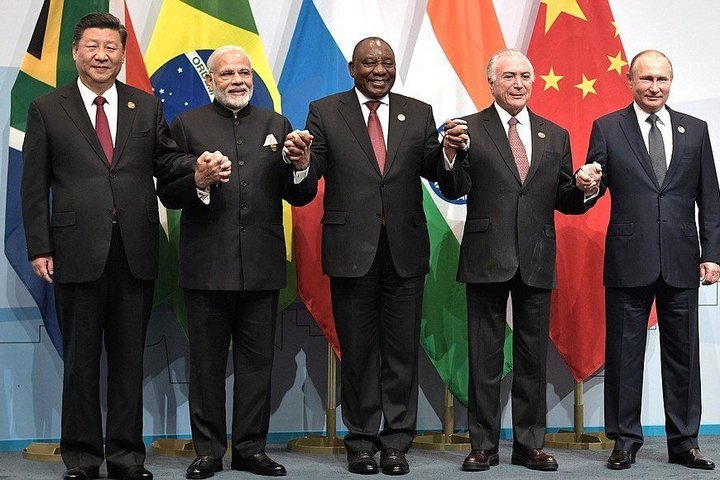
On 7 June, the BRICS states were actively involved in shaping global economic processes, guided by the principles of mutual benefit, partnership and equality. On the second day of the SPIEF, leading experts from Russian and foreign organisations, as well as government agencies, gathered at the conference dedicated to the expansion of the interstate association. New opportunities for business cooperation between the BRICS member countries were on the agenda. The current situation in the large global alliance — in the material of Realnoe Vremya.
Russia is focusing on economic agenda of the association during BRICS presidency
BRICS is not only an important political platform, it is the key trade area. According to statistics, the volume of foreign trade with the countries of the association have increased by 28% — and these figures had been even before the accession of the latter countries. Exports have increased by 21%, and imports — by 38.5%. Vladimir Ilyichev, Deputy Minister of Economic Development of Russia, noted that within the framework of Russia's current BRICS presidency, the country has directed all efforts to consolidate cooperation with its key allies.
“For us, the member countries of this association — China, India, South Africa and other colleagues — are our key partners, due to the new realities that we have. During our presidency [in BRICS], we tried to focus on the economic agenda of the association and fill it with new initiatives," Ilyichev said.
According to him, Russia traditionally conducts the practice of simplifying trade processes and fights against those illegal restrictive measures that are presented in the current reality.
“Together with our colleagues, we will try to coordinate our position on the practical challenge of some elements of sanctions, climate protectionism, in order to put everything on a formal basis," said the deputy minister.
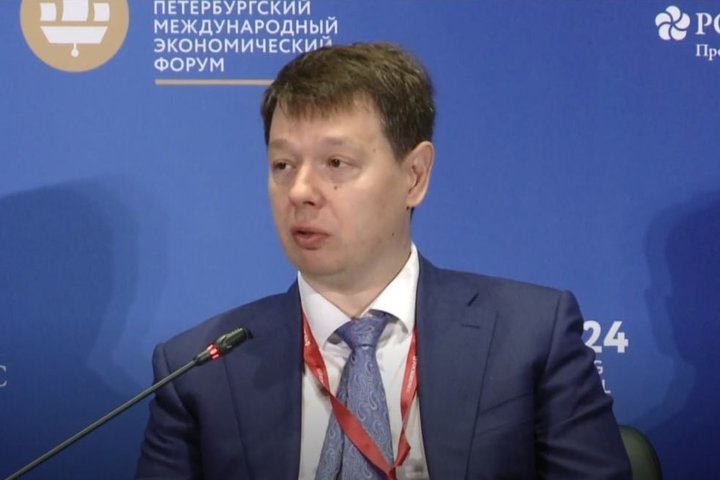
Ilyichev noted that the BRICS members are serious players in the agricultural market. Taking into account this indicator, Russia has launched an initiative to simplify trade in agricultural products, including in those aspects related to ensuring food availability and reducing losses, as well as in terms of the problem of uneven distribution of products and increasing transparency of trade regulation processes between the BRICS countries.
“Today, unfortunately, the interaction of the BRICS states in this area, in our opinion, is not enough. We need to change the situation when the participating countries of the organisation place more emphasis on other market participants, not with those within the community," the deputy minister lamented. “We propose to look for opportunities to simplify the rules of trade, search for export potential in our joint markets.
Difficulties in trading and more
Barend Johannes (Ben) Joubert, Sous-Sherpa of South Africa in BRICS, Chief Director, Regional Organisations, Department of International Relations and Cooperation of South Africa, spoke about the difficulties his country faces in trade. He noted that the sanctions imposed by the European Union create significant problems. Joubert stressed that the accession of South Africa and other African countries to the BRICS is an important event.
“The challenges make it very difficult to trade in many areas. The sanctions imposed by the European Union pose great challenges for us," he said. “We are very pleased that we and two other African countries have joined the BRICS. We believe that the potential will grow and we have a lot to move forward.”
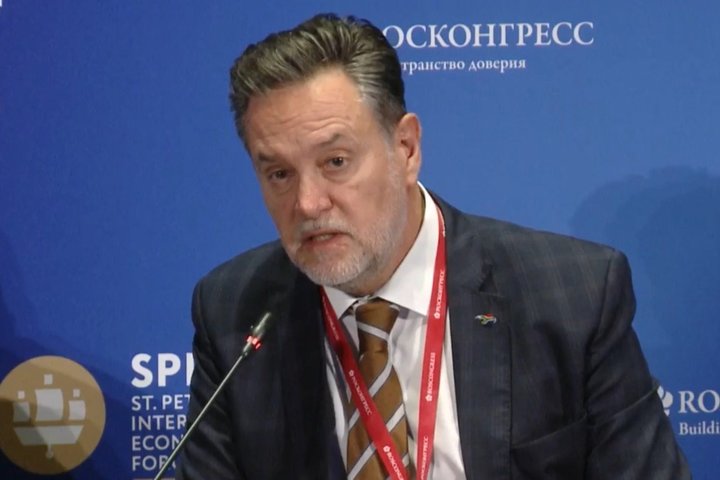
The diplomat recalled the upcoming BRICS summit in Kazan, during which urgent issues are going to be discussed. One of the topics will be the reform of a multilateral, multipolar approach to peace. The panelists will discuss how to involve all participants in the process and achieve a good result. Joubert noted that the issue of trade is difficult for the participating states, as it is inextricably linked to the work of the new Development Bank and its support.
“It is very important now that at this forum we can discuss the role of BRICS in the further development of economic cooperation in the world”
Today, the BRICS countries account for 28% of global GDP, more than 20% of global exports, and the inflow of direct investment amounts to more than $250 billion. The Community plays a huge role in the development of the global economy, as countries benefit from the diversification of economic relations: for example, Russia and Brazil are important players in the agricultural market. India and China have leading roles in the issue of human capital. In terms of the energy production market, Russia has enormous potential and infrastructure. According to the participants of the event, the joint work of the states creates a huge springboard for the development and prosperity of the member countries of the association.
“The whole world is currently going through unprecedented and difficult times — external shocks are changing the planet beyond recognition. The whole world has gone through the coronavirus pandemic, through the aggravation of political relations, and various kinds of conflicts. All these shocks have negative consequences for the economies of countries and international trade. It is very important now that at this forum we can discuss the role of BRICS in the further development of economic cooperation in the world. At the moment, foreign trade has stagnated at the lowest levels in recent decades," said Hala Helmy El-Said, Minister of Planning and Economic Development of the Arab Republic of Egypt.
Thus, according to her, the country's accession to the BRICS has greatly influenced the development of the African region, and the problem of food security has become one of the most important topics in the world today.
“One of the most important tasks that needs to be solved today is the problem of food security. According to the results after the [coronavirus] pandemic, three countries of our alliance are the largest producers: Russia is one of the largest countries in the grain industry, Brazil — soybeans, India — rice. In general, this is more than 50% of cereals worldwide. In addition to this, our cooperation plays a huge role in the global economy," she said. “After Egypt joined the BRICS in early 2024, there has been a strong development of our bloc. In recent years, Egypt has played an important role in the development of the African economy, and cooperation within the framework of BRICS will help Egypt achieve those economic development indicators that are planned for the near future. Joint investments are very important, especially now that we are talking about renewable energy sources. We focus on green technologies in the fuel and energy sectors.
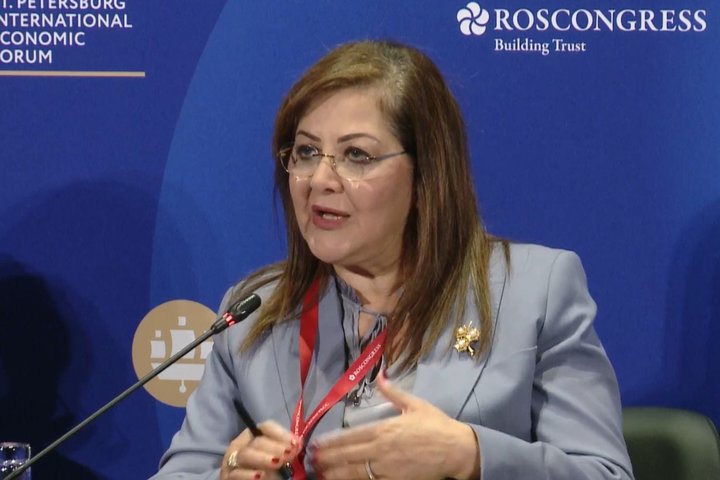
She also touched upon the issues of globalisation and global cooperation and cooperation of the United Nations States. She gave an example of the task set by UN Secretary-General António Guterres to achieve the necessary degree of cooperation by the world community. The World Bank also has a significant role to play — its main task is to help middle-income countries for their further development.
“It is very important that the World Bank allows financing new projects in this bloc. Therefore, the accession of Egypt, the United Arab Emirates, Saudi Arabia and Iran will only strengthen our bloc from a political and economic point of view in the modern world market," said Hala Helmy El-Said. “The GDP of the BRICS members is going to reach about 34% in the near future. This will also include population growth and energy production up to 43% of global figures.”
Role of AI in trade and investment cooperation and logistics within the framework of BRICS
The BRICS states are among the world leaders in terms of the share of companies conducting research or implementing artificial intelligence in their work. China, India, the UAE — these countries demonstrate success in developing investment, management and research systems for AI, which shows the high places of these countries in the global AI index.
“During our presidency, we want to reach an agreement on the introduction of AI technologies into our usual processes. In particular, the formation and optimisation of trade chains, analysis of the value of goods and contracts, simplification of communication between counterparties of investment consulting. We believe that the BRICS countries need to agree on joint projects regarding the use of artificial intelligence," said Vladimir Ilyichev, Deputy Minister of Economic Development of Russia.
The priority area of cooperation is the transport and logistics sector. The trade turnover between the countries reaches tens of billions of dollars. According to Sergey Pavlov, First Deputy Director General of Russian Railways, the trade turnover between Russia and China has grown to a quarter of a trillion dollars, with India — almost twice, with Brazil — to a record 11 billion, and with South Africa — by a third. There is also a significant increase in trade turnover with the new BRICS countries, for example, with the UAE it increased by 70%.
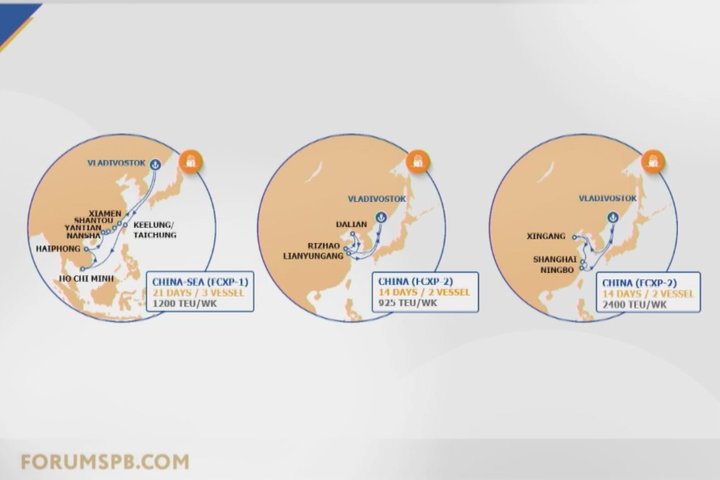
“The issue of transport and logistics links between our countries is of paramount importance, because this is the main task facing not only Russian Railways today, but also the transport systems of the BRICS countries. Today, as we've mentioned earlier, we have all the resources for development," Pavlov said. “Geographical remoteness brings to the fore the task of connectivity of our countries. Railways are directly integrated into these transport processes and play an increasingly important role in ensuring both domestic transportation and foreign trade.”
Arkady Korostelev, the president of the FESCO logistics company, said that this year it has been possible to establish direct deliveries of goods from Russia to China by water, bypassing the territories of unfriendly countries. In the first five months of this year, the volume of rail traffic amounted to 121 million tons, which is by 5% more than in the same period last year. At the same time, container shipments have increased by 14%. About half of the total volume of Russian Railways traffic is accounted for by cooperation with the BRICS countries. And two thirds of the world's cargo turnover is concentrated in these countries.
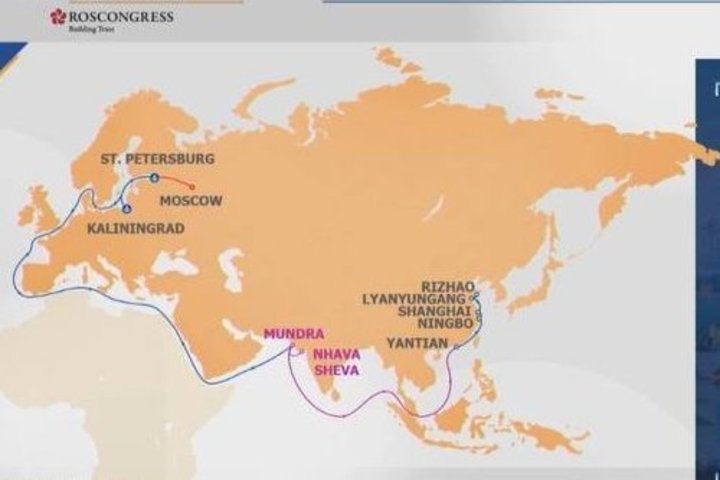
Trading without SWIFT
Sergey Storchak, the senior banker at VEB.RF, stressed the importance of solving the problem of paying for exports and imports of goods at the interstate level. He noted that there is still no clear answer to the question of whether it is easy to carry out such operations without using the SWIFT system. This is a difficult question, as many countries are afraid of the possibility of imposing primary or secondary sanctions against them.
“We have to take into account the interests of colleagues in terms of the risks they take on themselves due to possible secondary sanctions in their direction," said Storchak. “Nevertheless, at the current stage, within the framework of our presidency, a very important task has been set — to join our association of colleagues from those countries that have officially joined the BRICS association this year. This work is quite delicate, since state financial institutions require coordination with local authorities. To date, we have a more or less advanced relationship in terms of understanding the accession algorithm with two countries — Egypt and the UAE.”
Climate and agriculture
A contact group on climate issues has been launched at the BRICS site. Almost all of her work issues relate to the pressing climate agenda. Scientific cooperation has been given a big role in this direction.
“For us, cooperation in the field of carbon markets is a separate area. We would like to create a BRICS partnership on open carbon markets to bring together countries' approaches to validation and verification of project results," Ilyichev said.
Mikhail Rybnikov, CEO of PhosAgro PJSC, stressed the importance of the topic of food and food raw materials in the BRICS countries. He noted that Russian fertilisers do not contain dangerous elements and substances, which distinguishes them from the products of other market players. According to Rybnikov, Russia will continue to increase the volume of fertiliser supplies. Restrictions in this process may be trade barriers that increase the cost of products for end users. Therefore, work is underway to liberalise trade in agrochemical products.
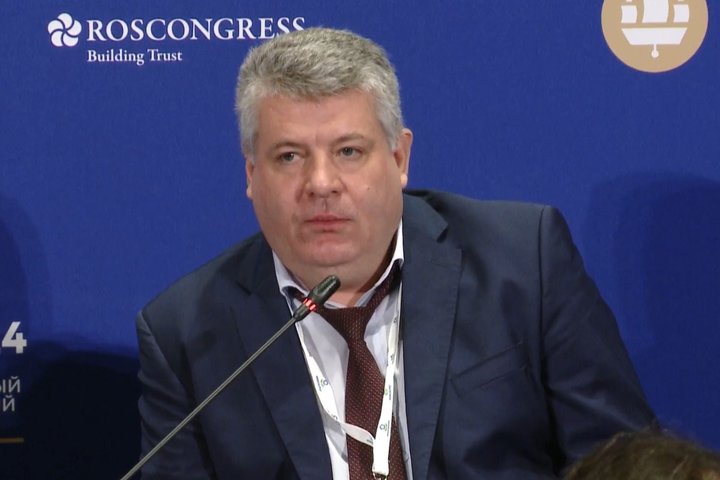
Today, Russia produces 58 brands of fertilisers, 16 of which include trace elements. Now Russian farmers have created special preparations to improve crop growth. Thus, the yield of cereals has increased by 15%, and legumes — up to 23%.
“The work does not stop there, in parallel we are working on the creation of four more drugs," said Rybnikov. “Without the effective use of mineral fertilisers, it is impossible to provide safe and high-quality food. Russia exports almost 19 million tons to the BRICS countries, which accounts for 50% of the country's total exports, and Russia accounts for 24% of total fertiliser imports to the countries of the association.”
Rybnikov notes that now the whole world is striving to improve the quality of food products. According to him, quality checks of raw materials, products and soils for growing crops are carried out in more than a thousand laboratories in 160 countries around the world. Annual grants are allocated to support farmers. For example, 48 young scientists from 32 countries of the world have been selected for seven rounds of the programme.
“The main goal is to teach farmers to use their lands and mineral fertilisers as efficiently as possible," he said. “This will definitely make a significant contribution to the fight against hunger and contribute to the implementation of the strategies of economic partnership of the BRICS member states.”